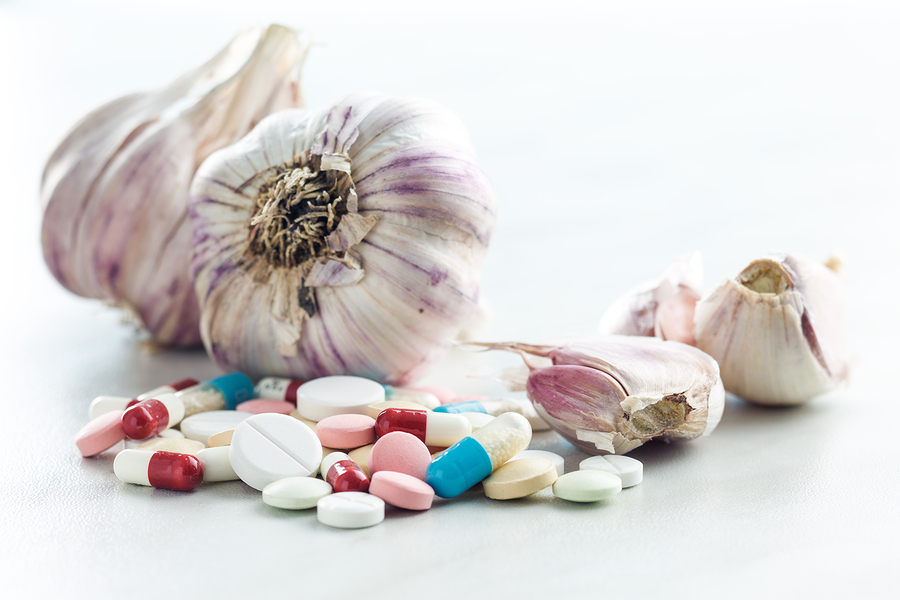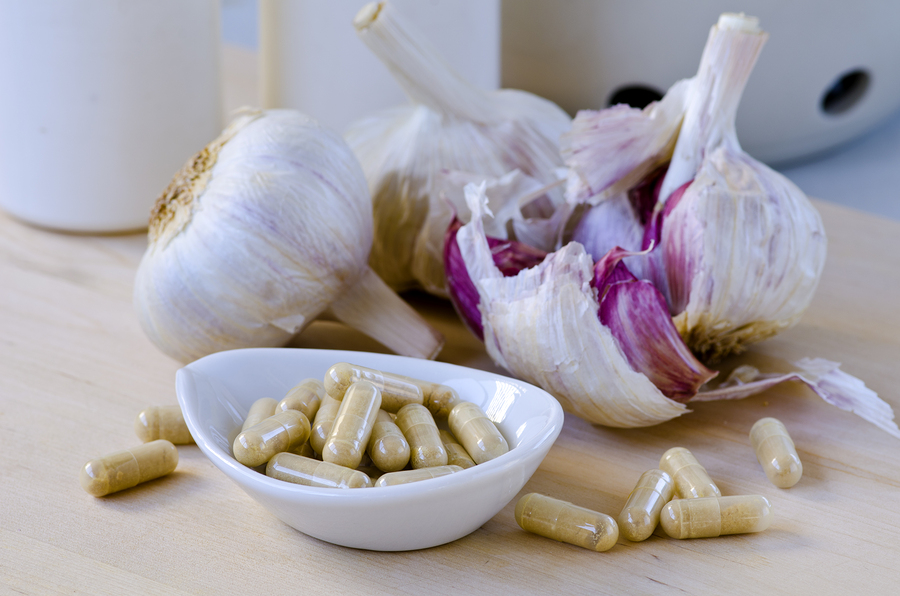- Make It Yourself Lavender Heart-Shaped Bath Bombs!
- 20 Things You Never Knew About “Down There”
- 12 Best Foods For Those Suffering From Arthritis Pain
- 12 Personal Hygiene Mistakes Almost Everyone Makes (Mom Never Told You About #4!)
- 15 Medicinal Plants And Herbs From The Cherokee People
- 12 Mind-Blowing Benefits Of Drinking Coconut Water During Pregnancy
- 12 Outstanding Winter Foods That Won’t Fatten You Up Like A Christmas Turkey
Garlic vs. Antibiotics: Which Comes Out On Top?

Photo credit: bigstock.com
The invention of penicillin in the early 20th century represented a quantum leap forward for modern medicine. Suddenly, bacterial infections that had plagued mankind since the dawn of history were treatable. As the use of this new class of drugs called “antibiotics” became more widespread, traditional medicines and food-based medicines fell out of favor, and some were even dismissed as quackery.
But this came at a price. Antibiotics are powerful drugs, but they have two major disadvantages. First, using an antibiotic is somewhat like the military striking a city with a nuclear weapon because one building is occupied by the enemy. Yes, the enemy was eliminated … but the entire city was destroyed along with it. Antibiotics do not distinguish between bad bacteria that cause disease, and good bacteria that are supposed to be in your body. Many people end up unwittingly destroying their own gut biome and negatively affecting their health in the long run because of an antibiotic regimen.
The second major weakness of antibiotics is the fact that no matter how powerful the drug may be, there was always a small percentage of harmful bacteria that survived. Through the process of natural selection, these bacteria passed on their traits to future generations. Over the decades, this had led to the development of antibiotic-resistant strains of bacteria. These “super-bugs” have led to new forms of disease that cannot be treated with conventional medicine. The overuse of antibiotics has exacerbated the very problem they once solved. It was this process that birthed MRSA, or treatment-resistant staph infection, among other new diseases.
This development has led some open-minded doctors to experiment with traditional, food-based remedies to see if they can offer a way out of this potentially disastrous situation. This article will focus on the promise that garlic holds for fighting harmful bacteria.
Continue to Page 2

Photo credit: bigstock.com
Garlic has many health benefits, including being rich in antioxidants, strengthening the immune system, lowering blood pressure, and even reducing the risk of cancer. It’s no coincidence that the Mediterranean diet, considered one of the world’s healthiest, includes garlic as a staple ingredient. But some recent research has shown that garlic holds a lot of potential for treating bacterial diseases as well.
Garlic contains a natural compound called allicin, which has been shown to be very effective against harmful forms of bacteria. Interestingly, allicin is formed from its precursor compound allin by chemical changes that take place when the garlic cloves are physically crushed. Crushing or chopping garlic makes it healthier.
A study performed at the University of Washington found that garlic was an effective treatment against certain types of bacteria, like c. jejeuni, commonly linked to food poisoning. Another paper published by the same researchers demonstrated garlic’s effectiveness against E. coli, another dangerous germ linked to bacterial food poisoning.
There is no standard dose recommended by doctors for how much garlic to consume to fight bacteria, but most of the studies performed with garlic focused mainly on the allicin compound rather than the whole garlic clove. In each case, about 600mcg of allicin was shown to be effective.
Of course, people do not consume allicin on its own, but rather though whole garlic or garlic extract supplements. According to the University of Maryland Medical Center, 2-4 cloves of crushed fresh garlic or 600-1200mg of garlic extract are beneficial for health.
This research is still in its early phases, and more needs to be done to clearly establish just how powerful garlic is against harmful forms of bacteria. For the time being, garlic should not be one’s first choice for treating a bacterial infection, or as a substitute for medicine or a doctor’s advice. Rather, enjoy garlic as a staple item in your diet that will reduce your chances of getting sick in the first place. Talk to your doctor before using whole garlic or garlic extract to assist in treating an illness.
READ ALSO: Essential Oils And Other Natural Substances That Work Like Antibiotics
As mentioned above, however, a solution to the antibiotic crisis will have to be found. Super-bugs represent a potentially devastating global health emergency, and doctors may be forced, however reluctantly, to return to traditional tools for healing illness. As the Greek physician Hippocrates once said: “Let food be thy medicine, and medicine thy food.”
References:


































Whitney
Dec 25, 2017 at 11:46 am
Its Christmas week and I have been really sick with some infection in my chest. Not quite pneumonia yet, but it sure feels close. I have been taking garlic to help the duration of time it will take to pass the holidays so I can get into a doctor. Its been just 2 days of taking garlic and I feel some improvement already. I will still get in to see a doctor, but my symptoms are becoming more manageable. 🙂